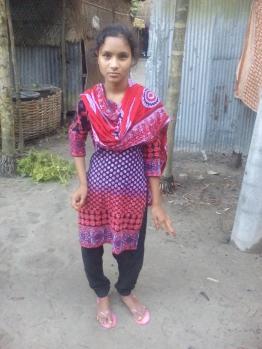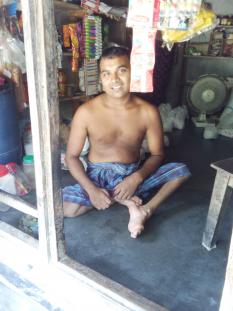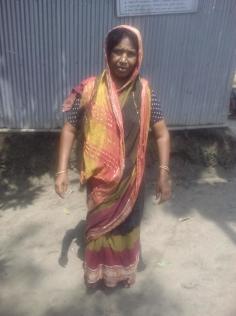Did you know poverty is both a cause and a consequence of disability? 1 in 5 of poor people in developing countries are disabled. They often lack basic services, including accessible sanitation. At IRC we believe this needs to change.
Published on: 06/10/2015
 Estimates suggest that from 10 to up to 20% of poor people in developing countries are disabled, which is significantly higher than the commonly assumed 7-10 % of people with disabilities in the general population. People with disabilities in developing countries are less likely to attend school, have access to medical services, or have their voices heard in society.
Estimates suggest that from 10 to up to 20% of poor people in developing countries are disabled, which is significantly higher than the commonly assumed 7-10 % of people with disabilities in the general population. People with disabilities in developing countries are less likely to attend school, have access to medical services, or have their voices heard in society.
At IRC we believe that access to safe and clean water and sanitation facilities is a basic right of all people, including people with disabilities. Still, disabled people mostly live without access to basic sanitation services. The UN estimate there are over 750 million disabled in the world, and 75 % live in low-income countries. Numbers are increasing, due to violent conflicts, accidents, HIV/AIDS, environmental pollution and ageing. The numbers of disabled are higher amongst the poorest of the poor in low-income countries; as many as 1 in 5 are likely to be disabled.
Both poverty and disability can drastically limit opportunities and choices. Disabilities often occur with poor people due to unsafe water and nutrition, inadequate living conditions, poor hygiene and sanitation, limited (access to) health services, more exposure to environmental pollution, war, conflict and disaster, lack of information, HIV/AIDS and hazardous working conditions. At the same time, the likelihood of poverty of a disabled person increases through the lack of access to education or employment, social exclusion, missing assistive devices and inadequate medical treatment.
People with disabilities are one of the most excluded groups in society. Disability, particularly of the head of household, inevitably exacerbates poverty of the whole family due to increased expenses, lack of income from work and lack of opportunities due to social exclusion. Caused by poor nutrition, dangerous working and living conditions, limited access to health care, poor hygiene, bad sanitation, inadequate information about causes of impairment, war and conflict and natural disasters create disabilities of which as many as 50 % are preventable.
 IRC is currently working to help around 75,000 people in Rangpur and Rajshahi in the Northern part of Bangladesh who are disabled to gain better access to sanitation. We are working with the London School of Hygiene and Tropical Medicine with a grant from ADRAS for research on access to sanitation for the disabled. The two-year project runs until 2016 in both Malawi and Bangladesh. IRC's focus in this project is on Bangladesh, where our work is linked to BRAC – Bangladesh's largest NGO that works in sanitation. IRC hopes to give a better insight into the prevalence of disability and on access to sanitation.
IRC is currently working to help around 75,000 people in Rangpur and Rajshahi in the Northern part of Bangladesh who are disabled to gain better access to sanitation. We are working with the London School of Hygiene and Tropical Medicine with a grant from ADRAS for research on access to sanitation for the disabled. The two-year project runs until 2016 in both Malawi and Bangladesh. IRC's focus in this project is on Bangladesh, where our work is linked to BRAC – Bangladesh's largest NGO that works in sanitation. IRC hopes to give a better insight into the prevalence of disability and on access to sanitation.
IRC focuses on delivering sustainable sanitation services to households - including people with disabilities. IRC's vision is to build a world where every person including those with a disability have a right and can access WASH services. Every day IRC is working with its partners to make this vision a reality. We support governments and all other stakeholders involved to move beyond the construction of latrines and toilets towards the effective delivery of sustainable sanitation services for all, including people with disabilities.
For a sanitation service to work, the interests of all parties need to be aligned and linked up through formal and informal partnerships. IRC is working with interested international WASH & disability organizations to facilitate dialogue, and bring in innovative ways of the further improvement of practices, policies and the regulatory environment.

In order to ensure that services are accessible for everyone, skills, expertise and tools need to be brought to the table. Bringing key partners to the table is the main role for IRC. The key elements IRC works on are: